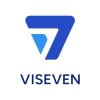Dive Brief:
- In a historic step, the Food and Drug Administration on Tuesday approved Spark Therapeutics Inc.'s Luxturna for a hereditary form of vision loss, marking the first time a gene therapy for an inherited disorder has been cleared in the U.S. for commercial use.
- Approval of Luxturna, which delivers a functional copy of a gene to restore visual function, represents a major milestone for the fast-accelerating gene therapy field.
- Yet it will also test the healthcare system's ability to pay for these types of advances, as Luxturna is expected to come with a steep price tag. Spark said in an emailed statement that it would not announce the price until early January. In previous comments, CEO Jeff Marrazzo indicated Luxturna's value could support a price approaching $1 million per patient.
Dive Insight:
Approval of Luxturna (voretigene neparvovec-rzyl) caps a year of advances in gene therapy that suggest the field could finally be close to realizing the therapeutic potential that has remained out of reach for decades. While the FDA has labeled two CAR-T treatments for blood cancers as gene therapies, Luxturna is the first directly administered treatment for an inherited disease caused by a genetic mutation.

Luxturna is approved to treat a rare retinal dystrophy caused by mutations in a gene known as RPE65, which leads to impaired or altogether absent function from the protein encoded by that gene. Individuals who have RPE65 mutation-associated retinal dystrophy experience vision loss in childhood or adolescence, progressing to complete blindness in some patients.
The FDA estimates the condition affects between 1,000 and 2,000 patients in the U.S.
Spark designed Luxturna to deliver a functional copy of the RPE65 gene directly into retinal cells, spurring production of the needed protein and restoring vision. In a pivotal study, 27 of 29 patients experienced improved sight over follow–up of at least one year post administration of Luxturna. Reviewing that clinical evidence, a panel of independent experts unanimously recommended approval of Luxturna in mid-October.
Safety risks were modest, mostly related to the administration of subretinal injection of Luxturna into the eye.
The gene therapy will be available in select treatment centers beginning in first quarter of next year, Spark said.
"We're at a turning point when it comes to this novel form of therapy and at the FDA, we're focused on establishing the right policy framework to capitalize on this scientific opening," said FDA Commissioner Scott Gottlieb in a statement.
The agency plans to issue further guidance for industry next year on the development of gene therapy products, but its speedy consideration of Luxturna — as well as of the two approved CAR–T cell therapies — signals a generally welcoming regulatory position.
Luxturna promises to restore sight for years and possibly even decades from a one-time administration of the corrected genes — making it challenging to assess the treatment's true overall value. Spark emphasizes that these indirect benefits, such as improved job prospects or lower caregiver expenses, should be considered when pricing Luxturna.
Whether Luxturna's benefits hold up over time remains a key question, though. Spark has followed patients from its initial Phase 1 study for between seven to nine years and those from its later study for between two to four years.
Insurers, for their part, aren't accustomed to paying for a drug's benefit in one historically high lump sum benefit. This problem could be particularly troublesome in the U.S., where individuals and families more frequently switch insurance plans.
As the first true gene therapy, Luxturna could become a test case for how these types of treatments are priced and reimbursed.
For Spark, Luxturna isn't likely to be a billion-dollar drug anytime soon, given the relatively small number of potential patients and potential reimbursement challenges. Yet approval of the gene therapy could make Spark a target for a buyout in the nearer term.
"We ... think the strategic value of a de–risked gene therapy platform with an FDA-approved product, experience with the agency, manufacturing, regulatory expertise etc., is attractive for big pharma/biotech, particularly if Luxturna could be additive to a bigger company's ophthalmology franchise," wrote Jefferies analyst Michael Yee in a Dec. 19 note to investors.
Spark will also receive a priority review voucher from the FDA, which could fetch more than $100 million if the company chooses to sell it.














